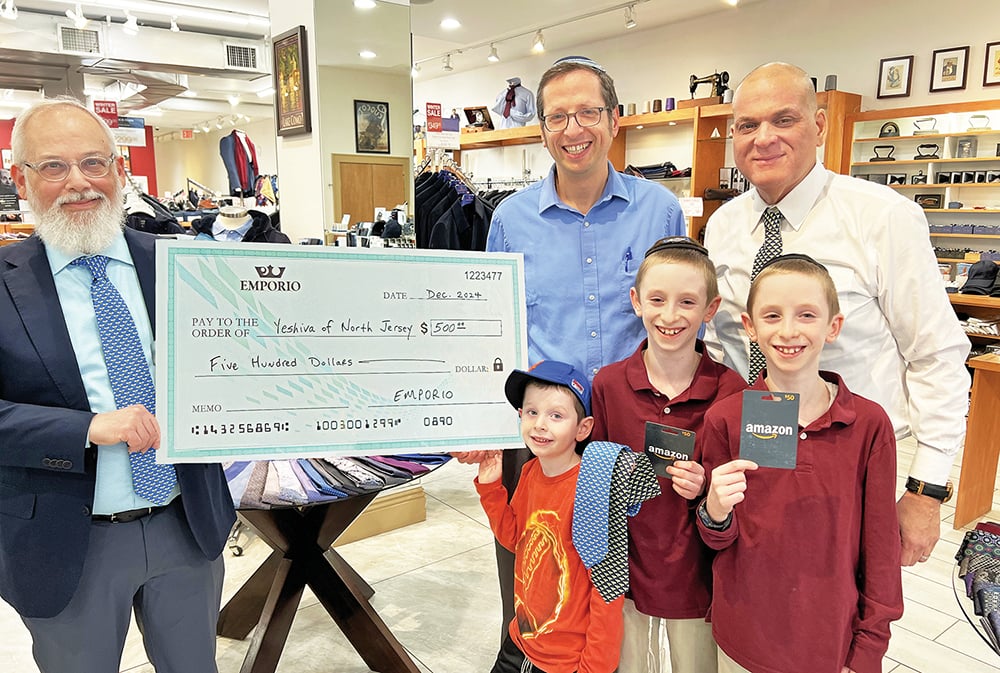
Down the long hall, three teens sit in class with their Gemaras on their desks. At the front of the room, booting up his computer and syncing it with the white board, is their rebbe. “What is a Zman?” he asks.
It is the first day back after winter break, and everyone inside the Rae Kushner Yeshiva High School (RKYHS) building is readjusting to being back at school. It would be understandable for students to have forgotten what they had learned before the break. Yet this rebbe is sure these boys know exactly how the Gemara explains what a “Zman” is.
He prompts one boy. “What was the opinion?”
“What was the argument?” he asks another.

Each student offered up an answer. Each answer drew a smile from their rebbe. “Good, very good,” he said, as he began the day’s new lesson.
Down another hall, a small group is learning how to write compelling arguments for essays. On the white board, their teacher highlighted some words. The students typed notes furiously onto their own laptops.
These classes, small by design, belong to Maor High School, a unique, challenging and structured college-preparatory school. Maor, a division of SINAI Schools, is for students who are academically strong but can use a bit of additional help in some areas such as with emotional or language skills, or executive function skills and time management.
“Our Jewish schools are doing more to provide support than they were a few years ago, but there are children whose needs are more significant and need individualized educational options,” said Rabbi Dr. Yisrael Rothwachs, dean of SINAI Schools. “People think this means a watered down education, but it does not. It means thinking about a child who could use help educationally, socially, emotionally, religiously.
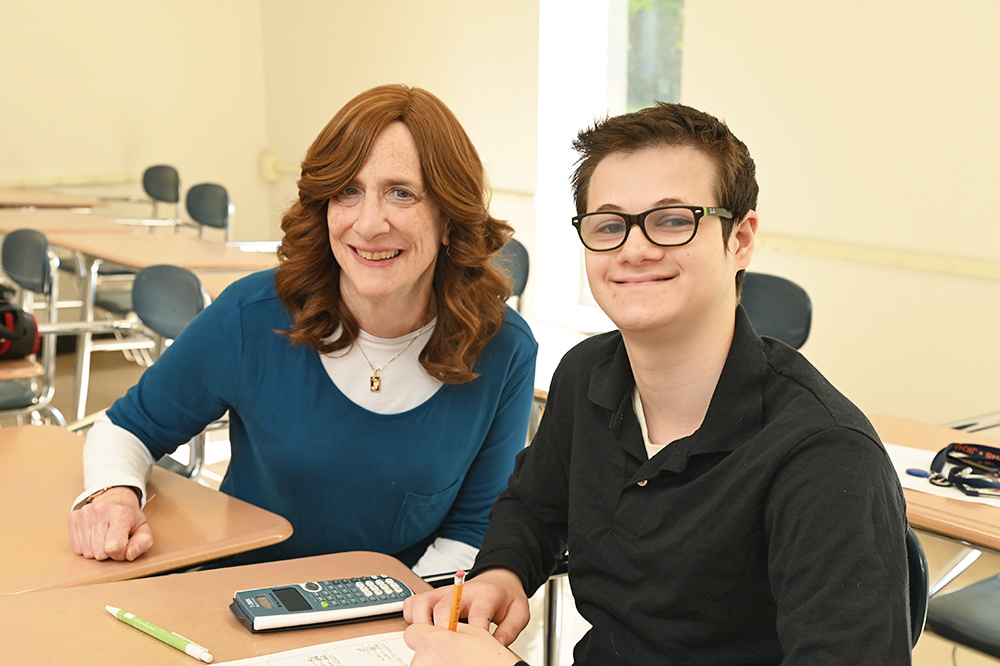
“Our Maor students are academically capable and follow the same path as their peers,” he continued. “They go on a gap year in Israel. They enlist in Tzahal. They go to college. Students come out of Maor with skills, confidence and an understanding of who they are as a learner and appreciating their learning needs and strengths.”
Maor High School is housed within the RKYHS building, allowing the students to be integrated into the social and extracurricular programs of the Kushner high school community. The two schools start at the same time. They have breaks at the same time. They share lunch hours and classrooms.
“If you ask our students where they go to school, they will say ‘Kushner,’ because we are very much a part of the Kushner world,” said Frada Stone, director of Maor High School.
Added Rabbi Yehoshua Gold, the school’s assistant director, “Our students get the best of both worlds. They attend Kushner Shabbatons, school trips and can join the sports teams, but we address their learning challenges with a method that helps them be successful.”
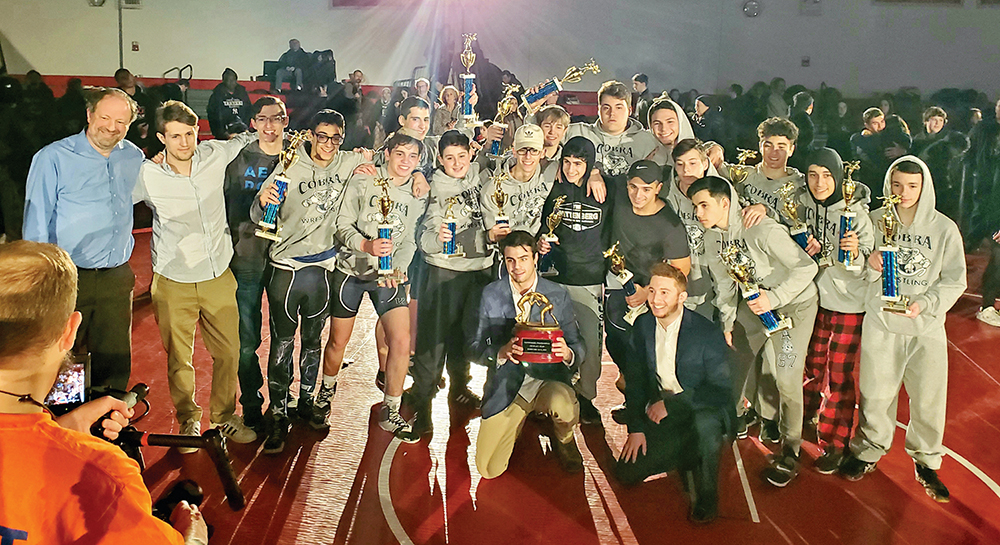
It is the one-on-one attention and support that has students from Bergen and Essex counties, Brooklyn, Monsey, Lakewood and beyond choosing to attend the Maor High School. Currently, the school has 25 students in grades 9-12. Students from this year’s graduating class have already been accepted to Rutgers University, University of Maryland and Stern College. A handful of students will be attending Israel programs in the fall.
Maor High School opened in September 2004 and since then hundreds of students have graduated from the school. It has a proven track record when it comes to preparing students for life beyond high school.
As Menashe, a former student, said, “For many students who struggle with social, emotional or learning issues, Maor is a haven. I often wonder where I would be without Maor. This thought scares me.” He explained that his teachers were his role models and his mentors. “They taught me about discipline, dedication and perseverance. They showed me how to believe in myself and they built my joy in learning. That joy remains with me.”
SINAI Schools also operates three high schools in Bergen County. However, those schools focus on life skills and vocational training. Maor is the only school that is geared for students who are college-bound and have strong academic skills.
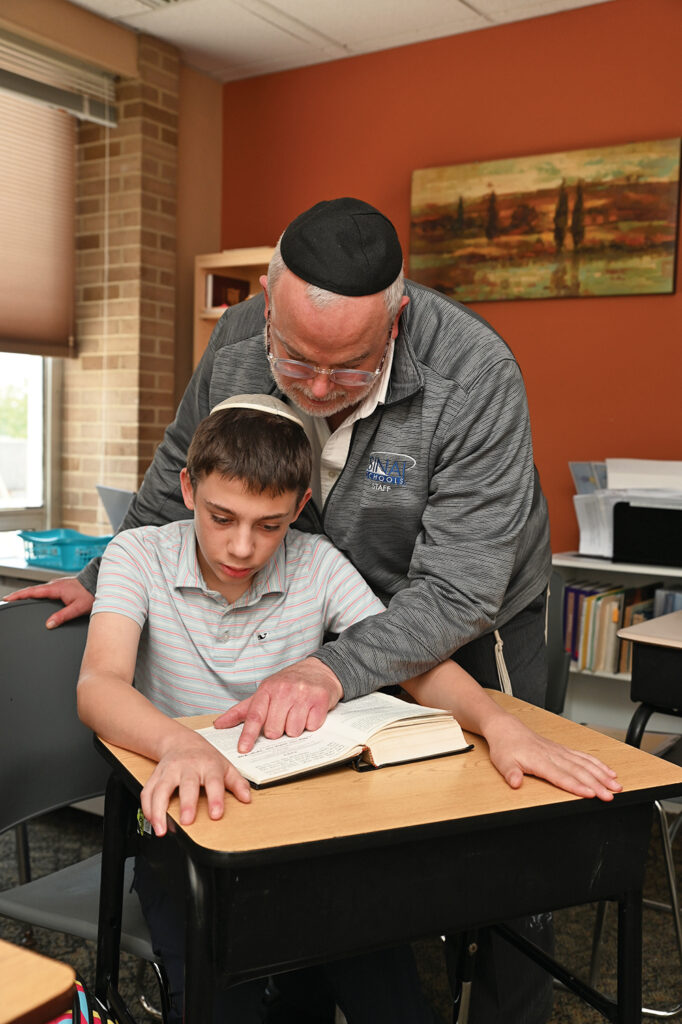
“Students struggle in school for lots of reasons,” said Rothwachs. “Maor students often struggle because of a learning disability or executive function [challenges]. But when the challenge is more psychiatric or if a student may need intense therapy and/or cannot get through the day independently,” they may not be a good fit for Maor.
Like RKYHS students, Maor students are required to take four years of English, math and history. They are also required to take three science classes, though, according to Stone, many opt for four years. Many Maor students are even integrated into the Kushner classes for certain subjects after careful planning and with appropriate supports in place.
In addition, students are required to take three Judaics classes, which are separated for boys and girls. Their Judaics teachers work with each student to meet them where they are Jewishly and help build up their kesher with Jewish life and practice. For some it may be encouraging them to keep Shabbat or daven or put on tefillin. For other students, it will be answering more complex questions about Judaism and Jewish life.
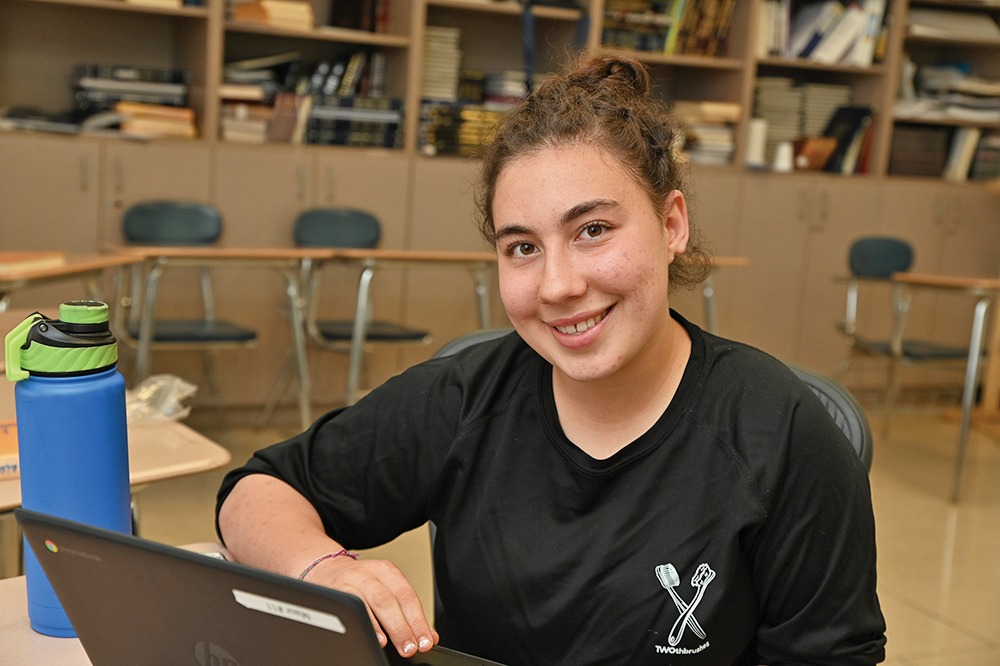
Each interaction is tailored for the specific child and where they are holding, to encourage them to learn and grow, said Gold.
While Maor students join their Kushner peers for Shacharit, they have their own Mincha minyan so they can practice how to conduct a minyan. Additionally, some students may partake in what Gold called “siddur geography, where they learn one-on-one how to find things in the siddur or learn kriah one-on-one with a rebbe to strengthen their Hebrew reading skills.”
Though these may seem like basic Jewish educational skills, Stone explained that some students come to Maor with gaps in their education simply because of the challenges they had just making it day-to-day in elementary schools.
In addition to the academics, a lot of time and emphasis is placed on problem-solving and teaching students to advocate for what they need to succeed.
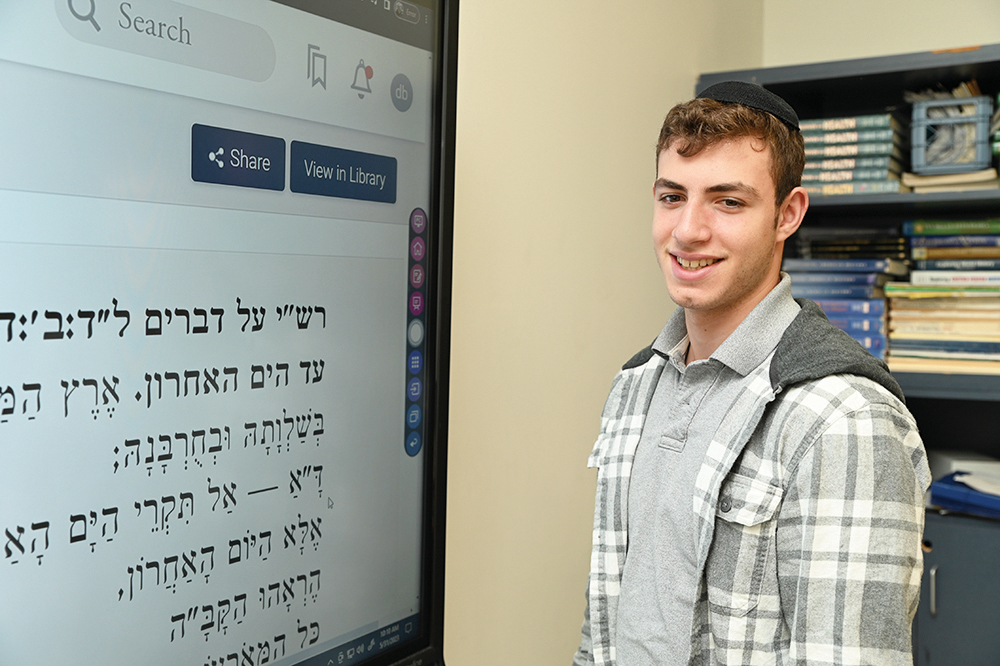
Key to Maor’s success is its dedicated staff, which includes both teachers and a full-time social worker. The role teachers play at Maor cannot be overstated. These are staffers Stone described as “passionate” and “committed.” Often, they continue their connection with their students long after graduation. One teacher just served as mesader kiddushin at a wedding and another attended the baby naming for the child of a former student.
“Our students know there is always someone to listen,” said Stone.
With all that Maor has to offer, it is surprising to some that there are not more students enrolling. That may be due to long held stigmas when it comes to alternative educational opportunities or fears of communal acceptance.
Rabbi Rothwachs said it’s time to put those concerns to rest. “It’s particularly painful to us when we have parents who come in, look at our school before ninth grade and then choose another option for whatever reason, only to come back to us when their child is in 10th grade and say it didn’t work out,” said Rothwachs. “That year of failure is painful to us and to their child.
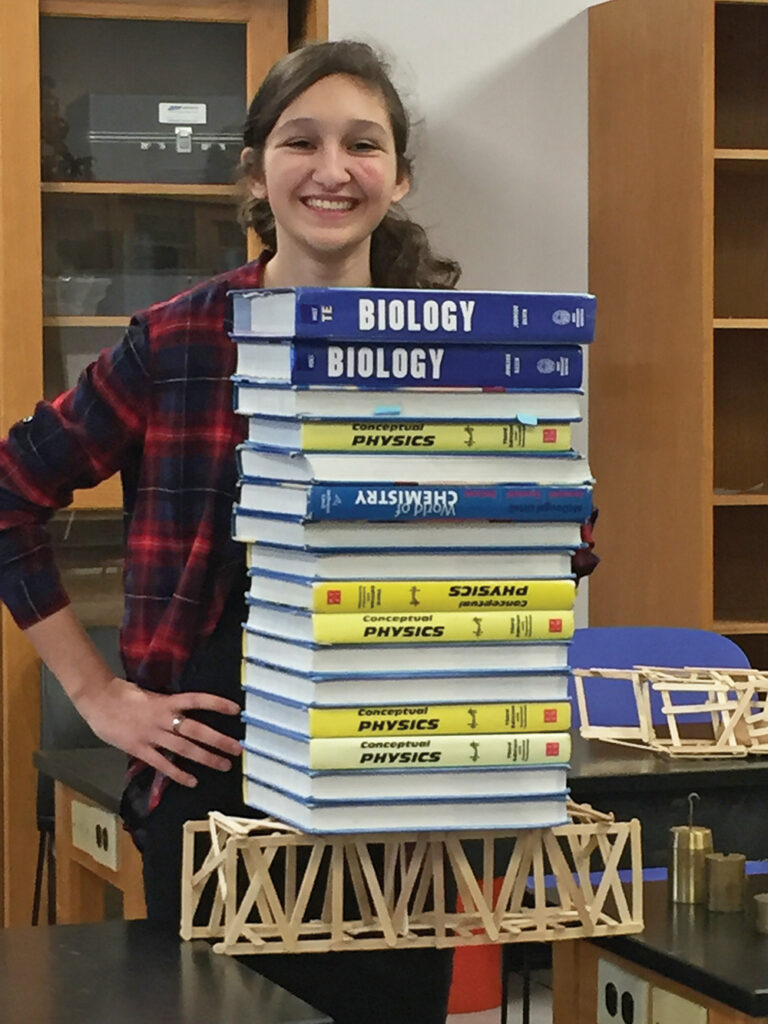
“I wish more parents understood when you put your child in a school where they can feel successful, understood and academically challenged, everything else falls into place,” he concluded.
For more information, visit www.maorhighschools.org
Faygie Holt is the author of the bestselling Jewish children’s book series, “The Achdus Club,” for girls ages 8-11. The books, “The New Girl” and “Trouble Ahead,” are available at Jewish bookstores across the country and online at menuchapublishers.com. An award-winning journalist and editor, Faygie’s work appears regularly on chabad.org and in The Jewish Link, among other outlets. Learn more about the author, her books and her writing at faygielevy.com.



